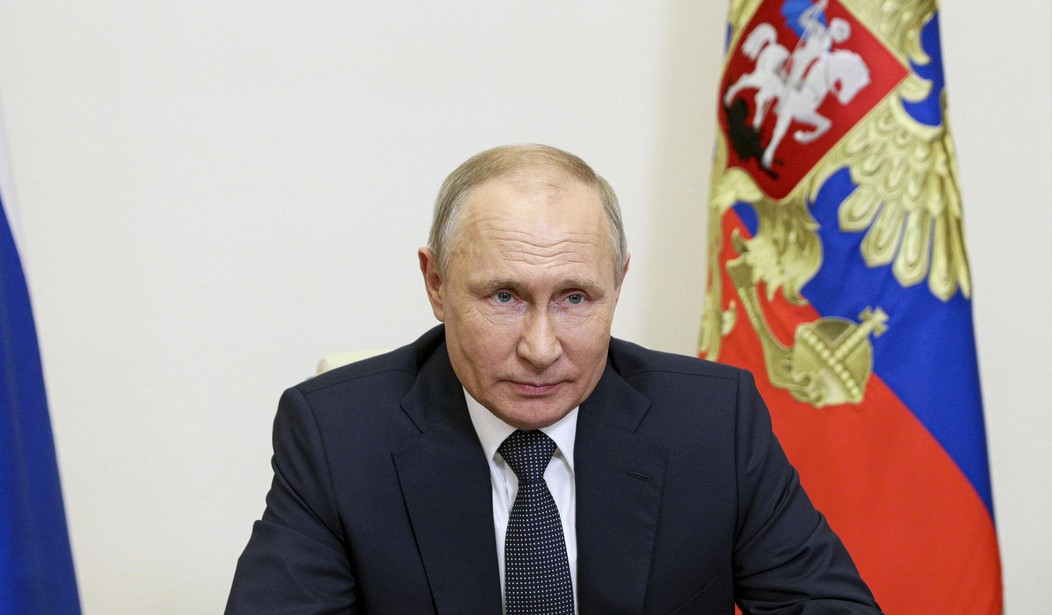On July 27, people were finally able to read my book about the threat Russia poses to America. What most of them don’t realize is that, for a while, it wasn’t clear my work would ever see the light of day.
It may come as a surprise to many, but our government has the power to decide what some Americans can write and say.
As a former Defense Intelligence Agency (DIA) officer, I became the target of government censors because I dared to reveal Putin’s goal to destabilize America and his plan to deliver on these ambitions. My warning ran counter to the bureaucrats’ plans to conceal from Americans how badly the government “experts” had bungled the Russian threat to our country.
So DIA weaponized against me the pre-publication review process (PRB), mandatory for every intelligence officer to comply with in order to publish a book. The government slow-walked the process, delaying publication, and made numerous unjustified redactions despite my use solely of open-source —that is, available to anyone—and unclassified information.
The PRB process exists to ensure that classified information, such as intelligence “sources and methods,” remains protected and under government control.
My manuscript contained none of that. I know better. As an immigrant from the Soviet Union, I became American by choice, rather than by birth. I joined the Intelligence Community in the aftermath of the September 11 terrorist attacks on America to help protect my adopted homeland from foreign threats. Keeping real secrets “secret” is ingrained in me, both as a former intelligence officer and as a survivor of the totalitarian Soviet regime. Nevertheless, DIA and CIA redacted portions from 31 pages of my book, claiming they contained government secrets. Most of the government’s redactions, in fact, were to hide my observations about the Intelligence Community’s deficiencies in understanding Putin’s capabilities and intentions and their lack of proper expertise required for the task.
Recommended
Also among the vital “secrets” deleted was my observation that CIA has a better cafeteria than DIA.
You don’t need to be a former intelligence professional to conclude that something is off in the U.S.-Russian relationship and the balance of power. The United States, a country with the best warfighting capability in military history, is struggling to cope with relentless cyberwarfare waged by Russia. How is it possible that we have no answer to Putin’s offensive? Someone in our government must not be doing his job.
Censoring my book is not the first time that the bureaucracy attempted to conceal its incompetence behind the rubric of “classified information.” Another former DIA intel officer, Lieutenant Colonel Tony Shaffer, became the target of government censorship when he published his memoir, “Operation Dark Heart,” in 2010. A Bronze Star Medal recipient and CIA-trained U.S. Army Reserve officer, Shaffer exposed the bureaucracy’s culture of coverup, incurring the government’s wrath.
The feds hunt down former intel folks who reveal information about the bureaucracy’s shortcomings. Former intelligence officers effectively lose their First Amendment protections. The bureaucrats deploy all sorts of tools to silence us—frivolous lawsuits, onerous pre-publication reviews, and other intimidation methods—all intended to deter or delay the publication of our books. The intelligence agencies have nearly unlimited power to delay a book’s publication. They hope you will simply go way. Former CIA officer Nada Bakos wrote a book, “The Targeter,” about her experience tracking Al-Qaida terrorists. The government dragged out her manuscript’s pre-publication review for several years. Submitted to CIA for review in 2015, Ms. Bakos’s book was not published until 2019.
After I submitted my manuscript for DIA’s review, I didn’t hear back from them for months, despite numerous phone calls, emails, and USPS Priority snail mail. By the time I did, my publisher had to delay its release for six months. The feds’ deletion of such silly things as the Vietnamese Pho on the CIA’s cafeteria menu suggested to me that the government sought to drag me into an endless negotiation trap.
But my mother-in-law, a neuropsychologist, had a clever suggestion. Instead of playing the government’s game, she recommended that I simply accept the redactions wholesale, leaving the bureaucrats with nothing to negotiate. I followed her advice. DIA expressed surprise that I was accepting all of its blackouts “as-is” and suggested we do some editing of the partial sentences caused by their redactions. That approach would have tangled up Putin’s Playbook in an endless round of reviews. Putin would die of old age before my book got out.
My publisher, Regnery, decided to print the book with the blackouts displayed, so readers could see the attempt by the American apparatchiks to conceal information they don’t want citizens to know. And the bureaucrats were stuck. What could they do? I had shocked them by accepting their demands.
Despite the blackouts, the reader will still understand the arsenal of tools Putin deploys to weaken America. The book is not presented through the prism of politics—no “collusion” hoaxes or other politicized theories. It reveals the unvarnished truth about matters that the government doesn’t want you to know, invoking a sense of urgency that we develop a counterstrategy to Putin’s master plan. My hope is that Americans will urge our government leaders to stop politicizing the Russia threat and do their homework on Russia and Putin to keep Americans safe. Committed to my adopted homeland’s security, I may have been censored by the feds, but I will not be silenced.
Rebekah Koffler is a former DIA intelligence officer and the author of the upcoming “Putin’s Playbook: Russia’s Secret Plan to Defeat America.”


























Join the conversation as a VIP Member